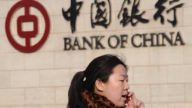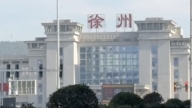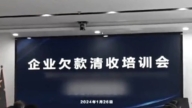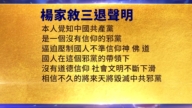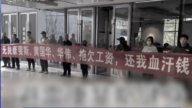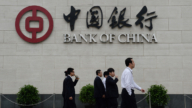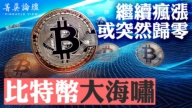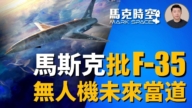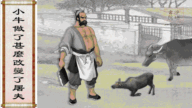【新唐人2011年11月19日訊】中共中宣部主管的中央電視臺和《人民日報》,這個月報導了「中電信」和「中聯通」兩公司,因涉嫌在寬頻接入領域存在壟斷,發改委正對兩公司進行調查。對此,工信部也利用旗下報章《人民郵電報》反唇相譏。外媒認為,中央級傳媒公然批評央企,非常罕見,有評論認為,寬頻市場的利益糾葛複雜,民眾對司法已經不信任,「反壟斷案」最終只能不了了之。
中共中央電視臺《新聞三十分》,11月9號指出,發改委正對「中電信」及「中聯通」進行反壟斷調查,兩公司涉嫌在寬頻接入領域存在壟斷,或面臨數億至數十億元的罰款。官方喉舌《人民日報》隨後也跟上,發表兩篇有關反壟斷法的文章。
兩天後,工信部機關報《人民郵電報》在頭版,以「混淆視聽、誤導公眾──駁央視對電信、聯通涉嫌價格壟斷的報導」,逐點反駁。文章以非常激烈語句指摘央視的報導。
央視和工信部旗下媒體駁斥了幾天後,《南方都市報》發表了社論文章表示,原因就在於,電信行業本身屬於國家特定行業和領域,採取限制其他主體進入的方式來特許經營,是最明顯也是最主要的國有資本壟斷行業之一。
中國網路作家荊楚也表示,中國的電信行業都是官僚壟斷,被有權有勢的太子黨控制。
中國網路作家荊楚:「因為中國的電話費太貴了。這個網路也是一樣的,因為它是一個壟斷,壟斷只有兩家,兩家它就形成了一個利益共同體,兩個人協商價格,達到一個壟斷的價格。如果是對它們罰以重款的話,有人就會擔心啦,最終要把這個罰款的負擔要轉嫁到消費者的頭上去。」
荊楚說,以前裝一個電話需要幾千塊錢,等於一個人一年的收入,用戶自己買電路,而且每個月不管用不用,都要收取月租費,使用了多少,又要按多少來收錢。
而發改委公布的調查數據顯示,「中電信」和「中聯通」之間的互聯互通狀況非常不好。由於存在著割據壟斷的狀況,兩家的互聯互通自然會影響到用戶,如果互聯互通沒有達標的話,對消費者的損害其實已經產生了。
旅居荷蘭的軟體工程師立裡認為,還不一定是壟斷造成的問題,而是部門分割利益造成的問題。
軟體工程師立裡:「比如說,中國電信和中國聯通它要向客戶競爭,它可能用一種惡性競爭的方式,它不是一種良性競爭,它互相拆臺。我故意的把它和中國聯通的那些網路接點的速度弄的很慢,連接很慢,比如中國電信以前它和教育網,和大學的教育科研網速度非常之慢,之間,甚至比到國外的速度還慢,就是在你的中國的內部速度,有的時候,你兩個網之間的速度比到國外還慢,它有的時候是故意的。」
立裡指出,這是一種不正當的競爭,妨礙了用戶的利益。
《法國國際廣播電臺》評論認為,在這種資源壟斷的經營中,競爭表象背後,實際還是自己人玩的遊戲。競爭的並非普遍意義上的市場主體,消費者只能作為旁觀者存在。而且,出現了所謂「服務差、收費高,卻非但沒有被淘汰,反而不正常生長」的逆淘汰怪象。
新唐人記者易如、唐睿、郭敬採訪報導。
CCP Central Companies Toughly Refuted CCP Media
CCTV and People’s Daily, both controlled by the
Propaganda Department of the Chinese Communist Party
(CCP), reported that China Telecom and China Unicom
were suspected of an alleged monopoly in the broadband access business.
The CCP’s Development and Reform Commission is making
investigations into the two companies.
CCP Ministry of Industry and Information Technology (MIIT)
refuted the allegations in its official newspaper.
Foreign media say that it is very rare that CCP central-level
media dare to openly criticize listed central companies.
Comments state that the broadband market involves
complex conflicts of interest.
The public has no confidence in China’s judiciary,
The Anti-monopoly Law will only end up with nothing definitive.
News in 30 Minutes of CCTV, the CCP mouthpiece,
stated on 9th November that the
Development and Reform Commission is making an
anti-trust investigation into China Telecom and China Unicom.
Both companies are suspected of holding a monopoly
in broadband access business, and face possible fines into hundreds of millions or billions of RMB.
CCP’s other mouthpiece, People’s Daily, followed closely,
publishing two articles on antitrust.
Two days later, People’s Posts & Telecommunications News,
MIIT’s official newspaper, issued an article on the front page,
entitled “Confusing the Issue and Misleading the Public:
Refuting CCTV’s Report Alleging China Telecom and China Unicom suspected of Price Monopoly”.
The article retorts point-by-point, taking a very tough tone.
A few days later, the Southern Metropolis Daily published
an editorial, saying that
the reason behind it is China’s telecom sector is a specific industry and field,
a franchise that restricts other entities’ access,
and is one of the most obvious and important sectors
monopolized by state-owned capital.
China’s internet writer, Jing Chu, commented that China’s
telecommunication industry is one of bureaucratic monopoly, controlled by CCP prince lings.
Jing Chu (Internet writer): “Phone charges are too expensive
in China, also with the internet broadband charge.
This is due to the same monopoly, two monopoly enterprises.
So these two businesses formed a community of interests.
They negotiated to set a monopoly pricing.
If they were levied heavy fines, some people will worry that
the penalty might be transferred to the consumers in the end.”
Jing Chu said in the past, a telephone installation cost
thousands of RMB, equivalent to one year’s income.
Each month, the subscriber has to pay a fixed line rental
charge, and extra charges based on the actual consumption.
CCP Development and Reform Commission’s survey show
that the interconnection quality between China Telecom and China Unicom is very poor.
The monopoly segmentation’s existence causes
the interconnection of the two to affect the subscribers naturally.
If the two’s interconnection quality does not reach the standard,
that will have produced real damages to the users.
Lili, a software engineer living in the Netherlands, guesses
that the problem may not be caused by the monopoly,
but instead, due to dividing up interests
among CCP ministries.
Lili (Software engineer) : “In order to compete for customers,
China Telecom and China Unicom might make for cut-throat competition, instead of a healthy one.
They mutually undercut each other.
For example, some websites’ connections to others within
China Unicom’s network are deliberately adjusted to run very slowly.
China Telecom’s network has a very slow connection to
the university education network, even slower than the connection to overseas websites.
In other words, in China’s domestic arena, sometimes
the connection speed between China Telecom and
China Unicom networks are even slower than
the connections to overseas. Sometimes, this is intentional practice.”
Lili said that this is unfair competition,
hindering the user’s interests.
Radio France Internationale commented that
in such a monopolistic business sector,
beneath the competition surface is in fact a game being
played by people on their own side.
The competition participants are not the normal
market entities, and consumers can only exist as a spectator.
Moreover, there appears this strange phenomenon of
“poor service with high charges, instead of being weeded out, It is instead seen as growth “.
NTD reporters Yi Ru, Tang Rui and Guo Jing


